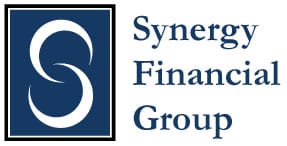Homeowners can save thousands of dollars in interest by paying off their mortgages earlier than the standard term, says Lee Mhlongo, the chief executive of FNB Home Finance.
Mhlongo says the standard term for paying off a home loan is 20 years. However, over the years homeowners have become inclined to reduce the time it takes them to pay off their mortgages by modifying their financial behavior.
“Our data shows that over the last 12 years there’s been an increase in the number of customers paying off their home loans in just over 10 years, moving from an average of seven years in 2007/8. This shift can be attributed to the global economic turmoil which led to the beginning of the 2008 credit crunch. However, even at the height of the credit crunch (2009 to 2011) customers were still paying off their mortgages within 12 years,” says Mhlongo.
He says there is clear evidence that customers are choosing to settle their home loans long before the conventional 20-year loan term expires, through well-executed money-management principles.
“We’ve also found that homeowners with smaller loans take the longest period, and those with larger loans take the shortest time to pay off. This can generally be attributed to entry-level income-earners having less disposable income to make extra payments compared to higher income-earners who have much more room to make substantial additional payments towards their home loans.”
He says that although most homeowners don’t have extra income to put towards their monthly mortgage repaymetns – particularly if they are first-time buyers – the recent 25 basis point interest rate cut had played a huge role in allowing customers to pay off their home loans earlier and save a massive amount in interest, provided they choose to keep their mortgage payments unchanged.
“In the end, paying off your mortgage early really boils down to one managing your short-term and long-term financial plans well,” says Mhlongo.
Rudi Botha, the chief executive of mortgage originator Betterbond, says homeowners need to become more aware of how they can save money by paying an additional amount into their mortgage every month.
“The latest Old Mutual Savings and Investment Monitor (July 2019) shows that only 25 percent of homeowners are currently paying more than the minimum instalment every month, while 5 percent occasionally add a lump sum, such as a tax refund or a bonus cheque, to their minimum monthly repayment.
“And yet one of the best investments homeowners can make is to use additional money they have available to shorten the repayment period of existing debts and especially their home loans,” says Botha.
Botha says the latest BetterBond statistics show that the average home loan is now about $975 000, which means that, at a prime rate of 10 percent, the average minimum monthly mortgage repayment is about $9 600.
Botha says that thanks to the way compound interest works, homeowners who pay only this minimum amount each month will pay more than $1.3 million in interest over the lifespan of a 20-year home loan.
“On the other hand, the homeowner who pays just 10 percent more than the minimum each month, or an additional $960 per month in the example above, will pay off the home loan in 15 years and four months, and save some $360 000 worth of interest in the process. That represents a return of more than 100 percent on the additional $177 000 invested in the home loan.
“There really aren’t many other savings options these days that can guarantee you that kind of return, while also delivering a fully-paid-for property. It is also worth remembering that the property itself will appreciate in value while you are paying it off,” says Botha.
Personal Finance.com / 27 August 2019, 5:00pm / Joseph Booysen
We are ready to help you find the best possible mortgage solution for your situation. Contact Sheila Siegel at Synergy Financial Group today.







